With mental health becoming a major topic of conversation among university students, meet the woman using sport to tackle stigma and build communities.
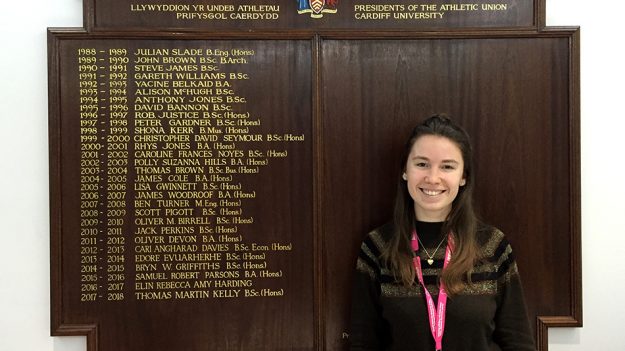
As the voice of the sporting population of Cardiff University students, Georgie Haynes is highly visible in the Cardiff community. Quite literally, sitting in office with her fellow six sabbatical officers in the affectionately named ‘fish bowl’, a circular glass-walled office on the third floor of the Student’s Union. Behind Georgie is a display of trophies and medals representing the sporting success of the university.
Georgie, at the age of 24, was elected as the Athletic Union President and VP Sport for the academic year 2018/19. She hopes to pave new ground in encouraging students to get involved with sport as a way to improve mental health in higher education. According to Sport England, 55% of UK higher education students participate in sports at least once a week; With the increased awareness of mental health in the student population, Georgie’s campaign work aims to break down barriers to improve mental health in sport.
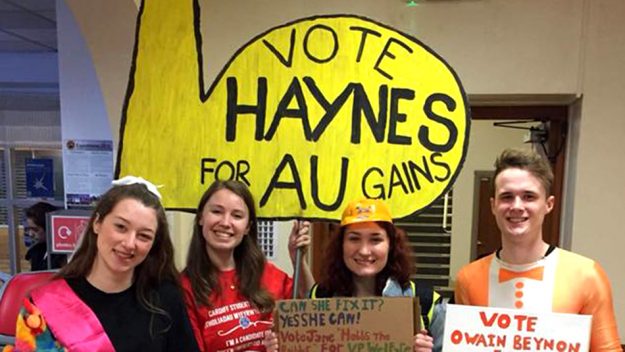
“One in four people experience mental health issues and the majority of those will happen before you reach the age of 24, which is the vast majority of our students here,” Georgie explains, “So we run a lot of campaigns. This year I’ve seen a lot of different sports clubs getting involved in those, with Mind Your Head week and Alright, Mate and just publicising the message that it’s ok not to be ok and it’s ok to reach out and to be accepting of people and create that kind of environment that people feel able to talk about things like that. But there’s always work to be done and there’s always room for improvement.”
Georgie will be spearheading the ‘Find Your Sport’ campaign in January, a first for Cardiff’s Athletic Union. Cardiff University is home to over 67 sports clubs, and Georgie recognises that people might not be aware of all the opportunities available to them and the benefits they could experience.
“The tagline of the campaign is essentially, ‘sport is what you make of it’, and showing sport in a different light. It’s not just the competitive, the elite, the physicality. You don’t have to be huge, six foot five and stacked to play sport, it can be anything that you want it to be and it can be done on a recreational basis. The benefits of that are being widely advertised now with regards to mental health.”
Of course, Georgie’s insight into life in sport has been gained over a lifetime of participation. How has sport led her to this position?
“Sport has been a big part of my family as well as throughout school, my dad kayaked in the Olympics, so he’s from a strong sporting background. I think from a very early age it was instilled in me and my brother that sport was just something that we would do,” Georgie says, looking back, “At school I did pretty much every sport that you could really do, but I suppose I really excelled in athletics for a while up until the age of 15, 16. When I haven’t done sport I’ve felt like there is something missing from my routine and my life.”
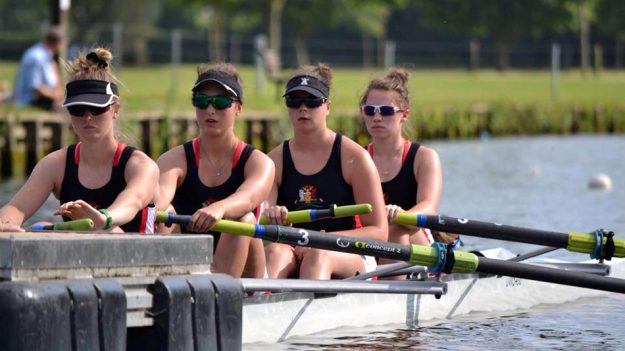
Georgie continued sport throughout university, and she speaks affectionately of her experiences: “The friendships that I have formed through doing sport and the relationships I have built from that are lifelong. Sport is basically what kept me at university. I kind of struggled through my degree, it took me an extra year to do, and sport is what held me here. The friends that I made are the ones that pulled me through. I think maybe without them even realising that they were doing that. It definitely has shaped me as a person, and it’s an outlet for my competitive streak.”
“I talk a lot about the positive experiences I’ve had within sport, being part of a team and the relationships you make. Whether its friends at training noticing that you’re not yourself, you’re a bit quiet, and that kind of thing,” Georgie pauses, looking thoughtful, “But I’ve had some negative experiences. When I was at school, I found it difficult to keep my sport to a competitive level. I found it quite draining and that’s when I took a step back. But then it goes back again to the relationships that I’d already formed from doing the sport. I had the support network, the people, the coaches around me, my friends saying, ‘whenever you’re ready to come back you’re more than welcome’ and they helped me.”
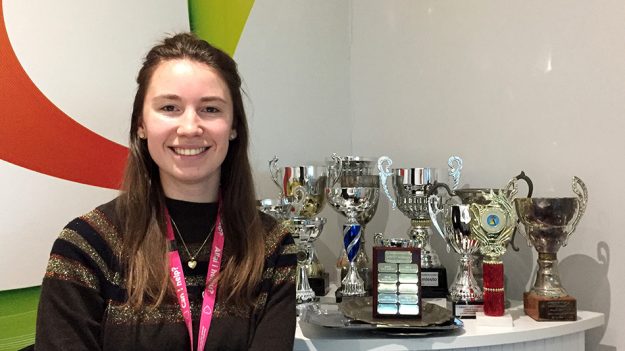
Perhaps her experiences in sport at university are what makes her so well-equipped to change the climate of sport and mental health for coming students.
“Being at university, whatever course you do, there are different kinds of stresses at different times, so it’s an outlet to let off a bit of steam and channel any feelings you’re having during the day.” Georgie emphasises the importance of community in forming strong support networks: “Just because you do kung-fu, just because you do rugby, you’re both doing activity and it’s obviously very different in its nature, but the foundations are essentially the same. You’re doing stuff to gain things like teamwork and discipline and time-management when you’re doing things alongside your course.”
“I think that mutual respect for other students within the sport sector is only going to bring good things. That’s something that’s not going to change overnight, and whether that can be helped by doing inter-sport activities and raising the awareness of these other sports that some people might not even know that we have here at Cardiff. I hope that’s where my campaign comes in.”
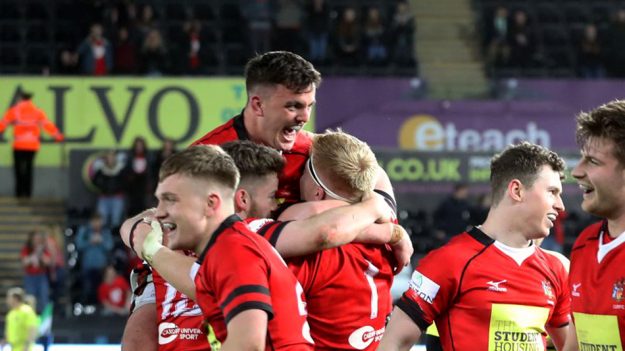
But mental health and sport is all about finding balance. So how does Georgie like to spend her rest days?
“I was going to say something inappropriate,” Georgie laughs raucously, “Even on my rest days I still feel like I need to do something relatively active, whether that’s just walking to work. A nice gin in the evening!”
To keep up with Georgie’s campaigns, follow her on Facebook and Twitter.
